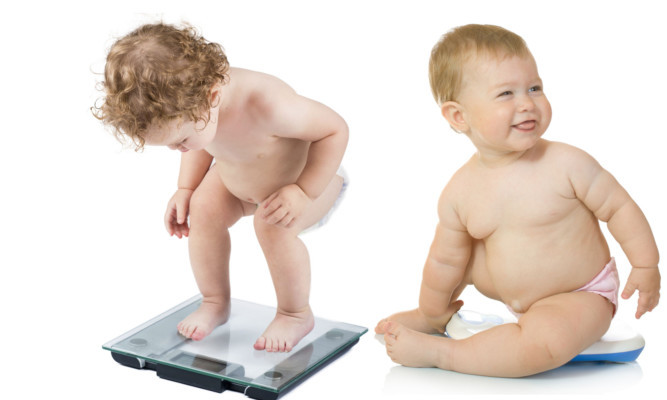
Children as young as TWO are being sent to toddler exercise boot camps to tackle soaring obesity rates.
Overweight infants are being put through their paces as part of a £2 million-a-year NHS drive.
Children placed on the toddle-not-waddle courses have to take part in half-hour “active play” sessions.
The youngsters are encouraged to play with balls, parachutes and balloons while parents are coached on how to read food labels and deal with fussy eaters.
It is hoped the startling step will halt the strain caused by fat-related health problems, which begin in childhood and stretch into adult life.
Those behind the move insist they are a way to help parents make “healthy lifestyle choices” for their toddlers.
But critics say the sheer fact drastic weight intervention steps are now deemed necessary before children have even started nursery is “alarming”.
And eating disorder charities have warned the move “must be done sensitively” in order to avoid stigmatising children.
Scottish Conservative health spokesman Jackson Carlaw said it is deeply worrying health professionals are having to intervene with children of such a young age.
“The very fact that this is required is alarming,” he said. “But we’ve seen no end of statistics showing the comparatively poor health and fitness levels of our young people, so any drive to change that is welcome.”
The classes have been launched across the country as part of a massive NHS drive.
Children who are measured as being overweight during routine toddler health checks undertaken between 27-30 months could be referred.
Similar schemes have been running for some time for children found to be overweight when they start school aged five. But rates of obesity are so appalling health boards including NHS Tayside, Fife, Highland, Dumfries and Galloway and Lanarkshire, have signed up to the two-year-old boot camp drive. Other boards will continue to wait until children are five.
But experts are worried that targeting overweight toddlers may actually lead to more problems. It has also emerged that rates of the eating disorder anorexia have also risen in youngsters. Girls as young as six are now going on diets, according to research.
A spokeswoman for the eating disorder charity Beat said: “Although it is laudable that measures are in place to monitor children’s health, and promote healthy diets and healthy body sizes, it must be done sensitively.
“Identifying children at risk of obesity is not an exact science. They are growing, and their bodies are changing by the day.
“We know concerns about weight, size and shape are beginning to affect children at ever younger ages.
“They should gain weight throughout their childhood, yet a generation of parents have been left worried about their children’s weight, without understanding how to respond effectively to the risk it may pose.”
A Scottish Government spokesman said: “The Scottish Government is committed to addressing obesity in Scotland, but there is no simple solution and we have to maintain activity across a broad front.”
A quarter of Scottish children are overweight by the time they are 30-months-old, according to official figures.
Schemes aim to help parents and kids
NHS TAYSIDE is running a 10-week scheme called Fun Fit which takes place in community centres.
Aimed at children aged two to four, it is described as a “fun packed programme of creative and active play, which runs alongside healthy behaviour messages on fussy eating, temper tantrum control and understanding food labels”.
The Be Active, Eat Well, Stay Healthy Together (BEST) scheme in NHS Fife also runs sessions for children from the age of two.
It provides a 12-week one-to-one support programme for parents with overweight toddlers as well as free leisure centre passes.
A typical gym session would involve activities for the children, such as skipping or playing ball games.
Their parents are told how to encourage their children to be more active indoors and outdoors every day, cutting screen time and managing food tantrums.
Experts believe that tackling obesity at an early age is vital.
Studies show that children who are severely overweight at 30 months are likely to remain overweight, particularly if their parents are also obese.
Being overweight can lead to a multitude of health problems in later life including heart disease, diabetes, breast and bowel cancer and strokes.
A spokesman for NHS Tayside said: “The Fun Fit groups offer a friendly, family setting to support people to make healthy lifestyle choices and maintain a healthy weight.
“While the children are being active, their parents learn about portion sizes, ensuring meals are based on all the food groups, looking at the sugar and fat content of foods and drinks, reading the labels when shopping and how to deal with toddler tantrums at mealtimes and with so-called ‘fussy eaters’.”

Enjoy the convenience of having The Sunday Post delivered as a digital ePaper straight to your smartphone, tablet or computer.
Subscribe for only £5.49 a month and enjoy all the benefits of the printed paper as a digital replica.
Subscribe